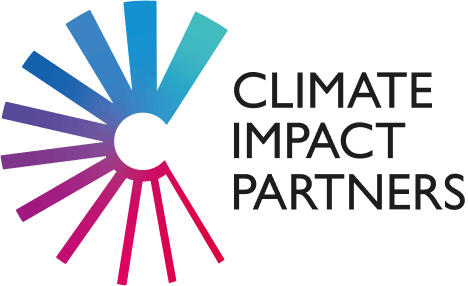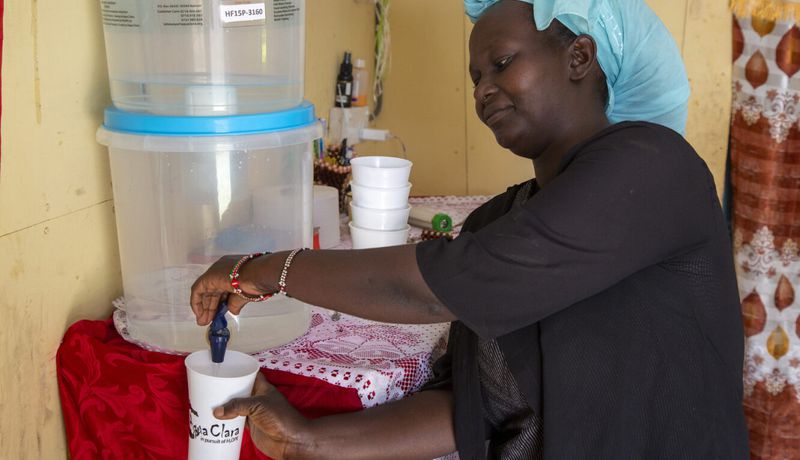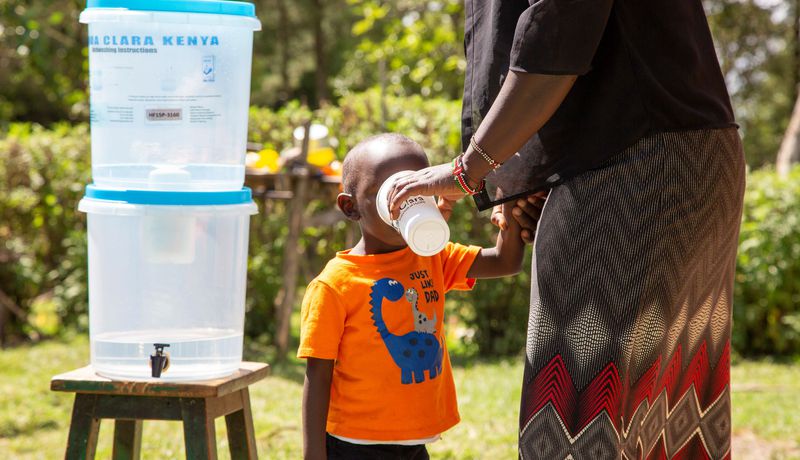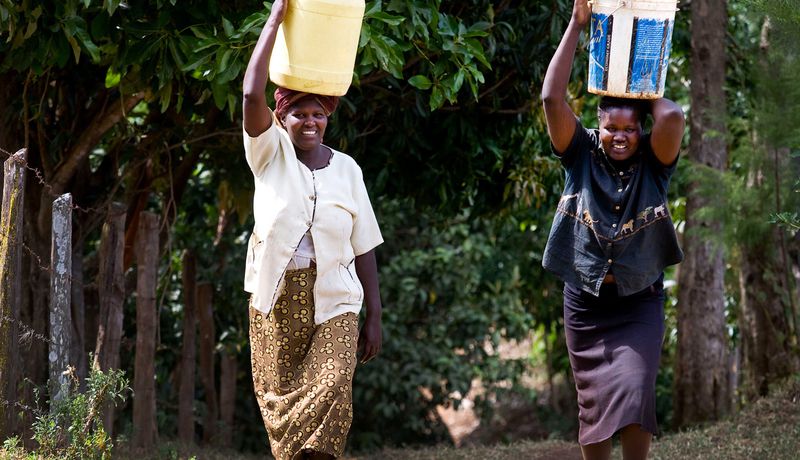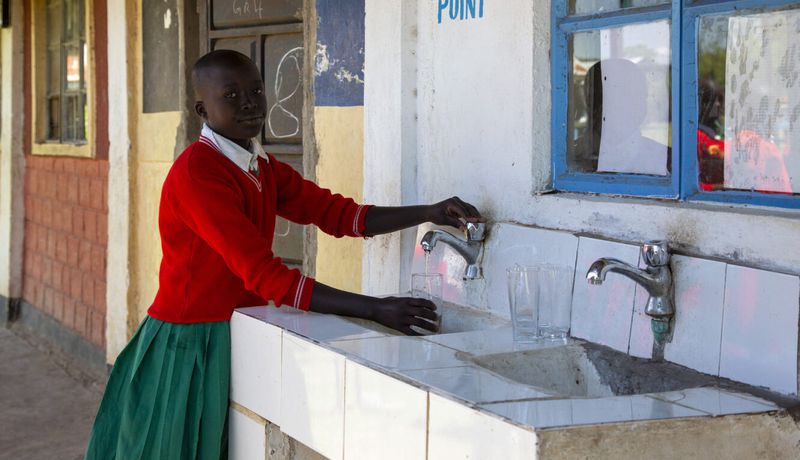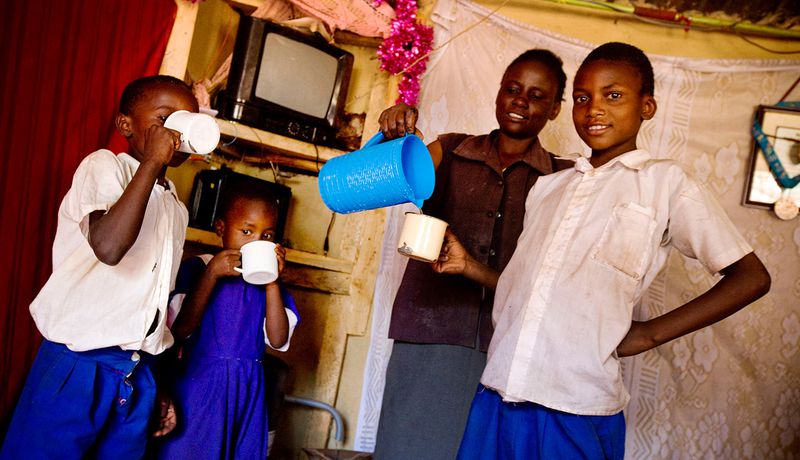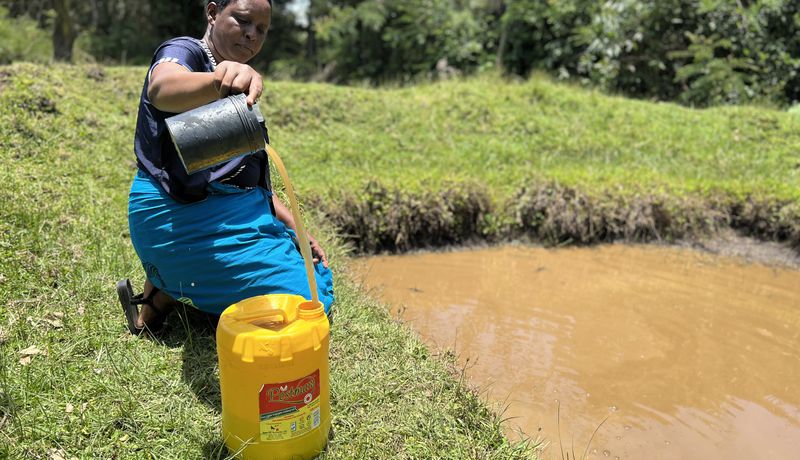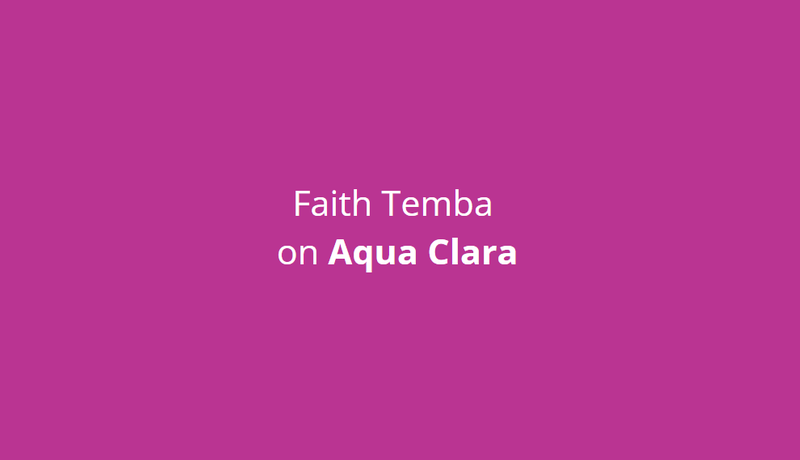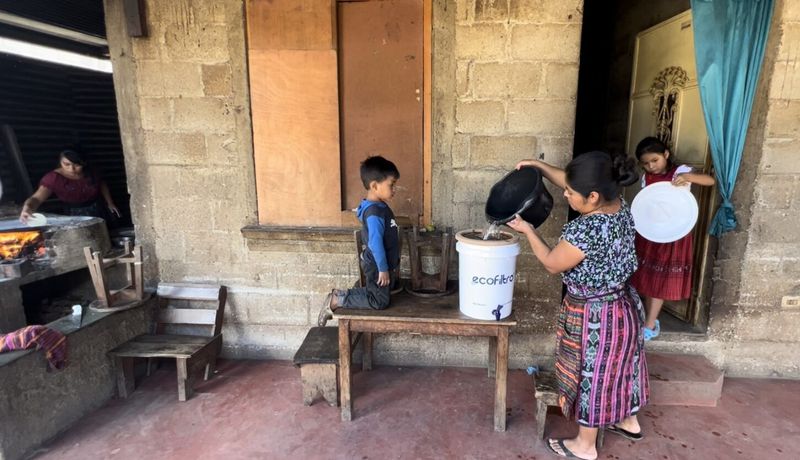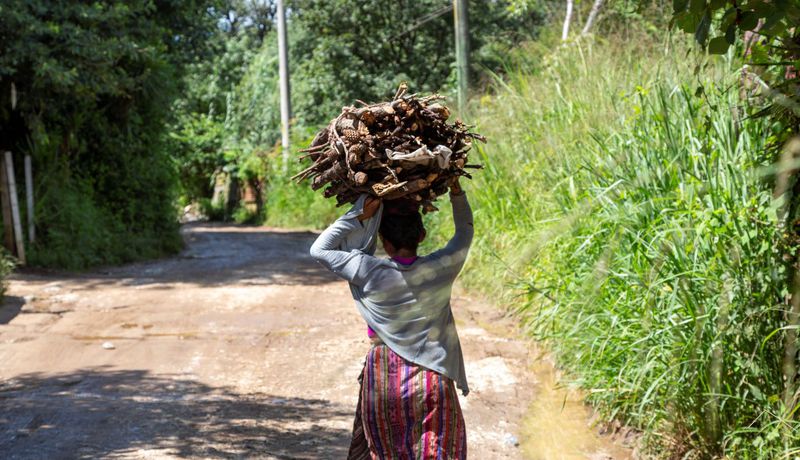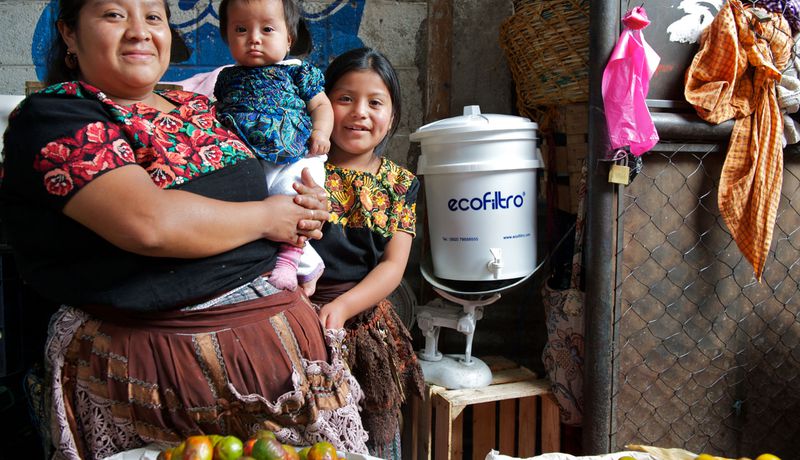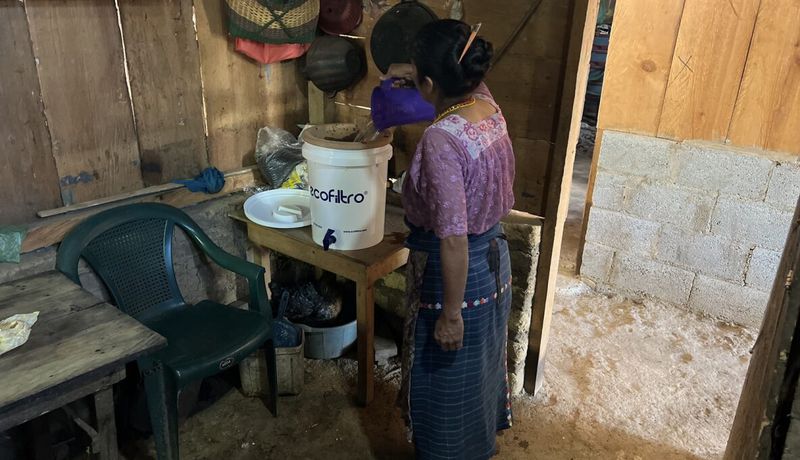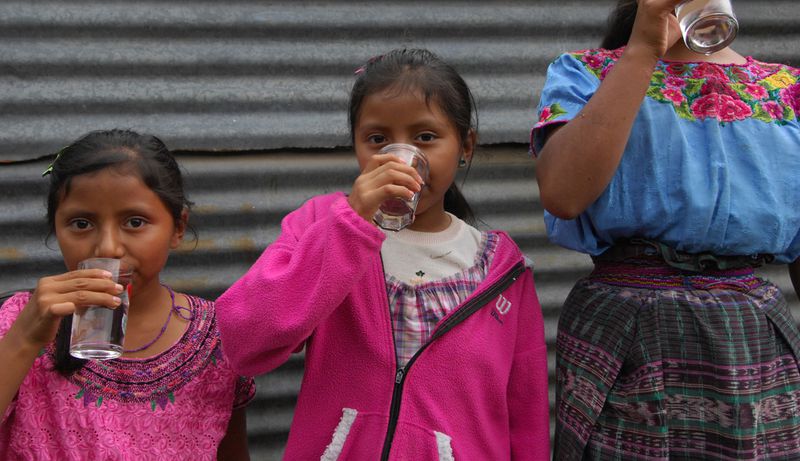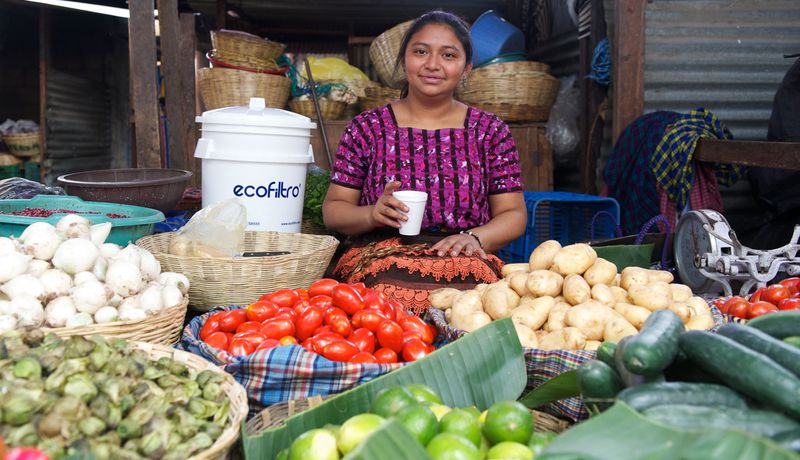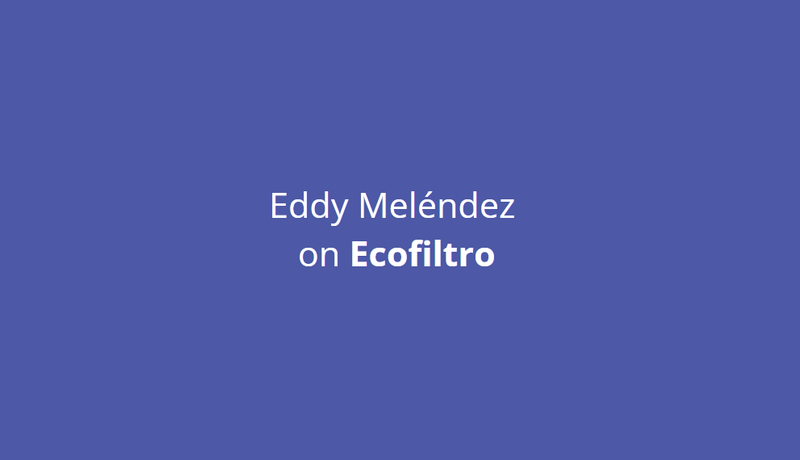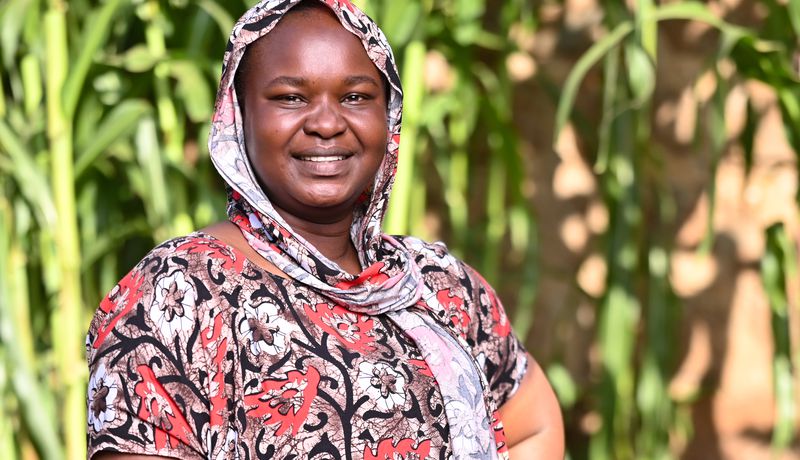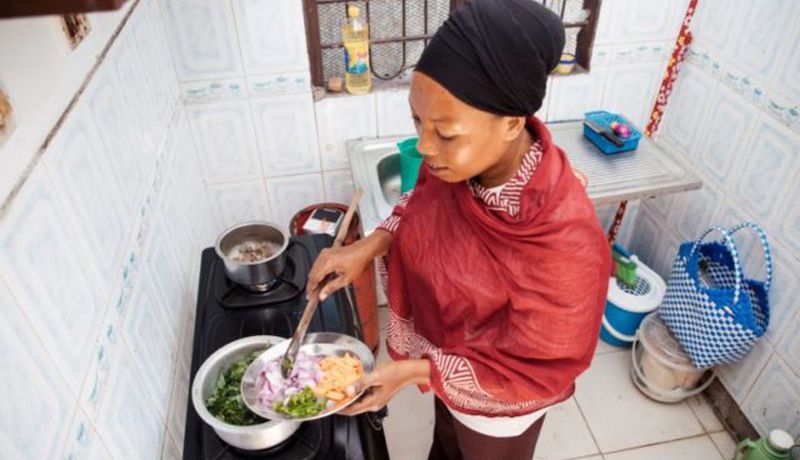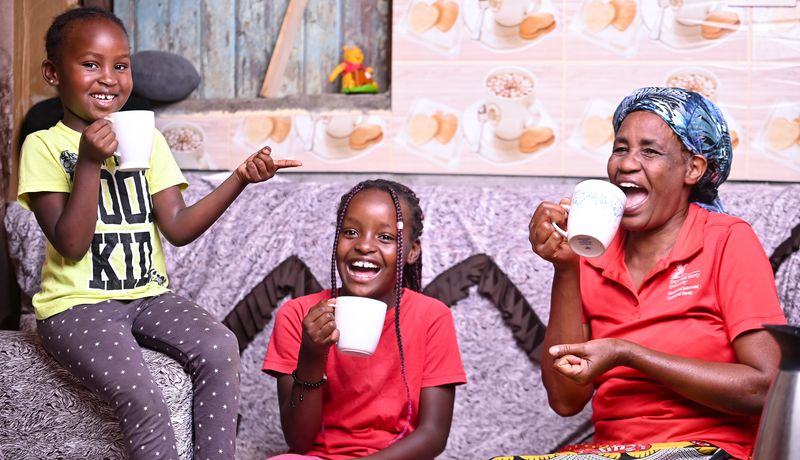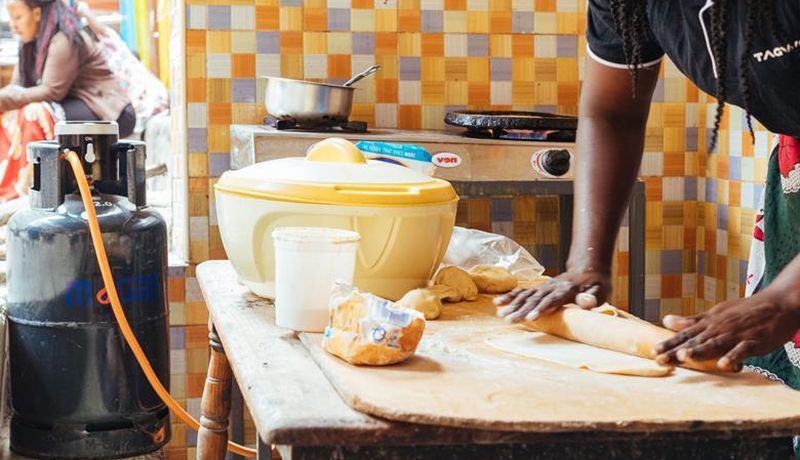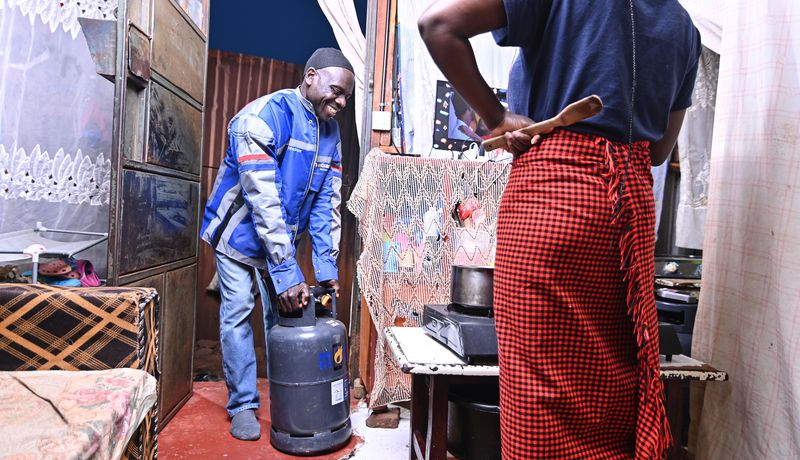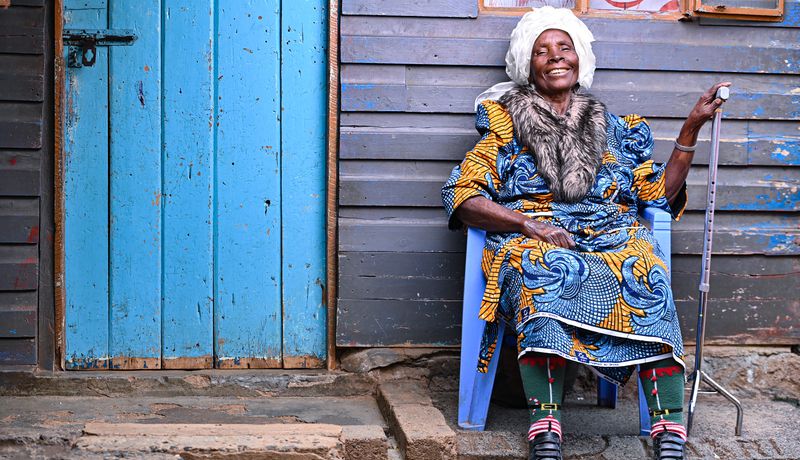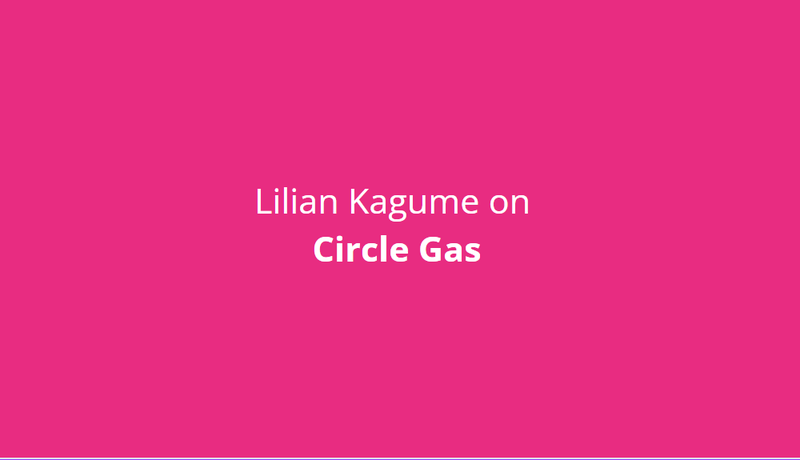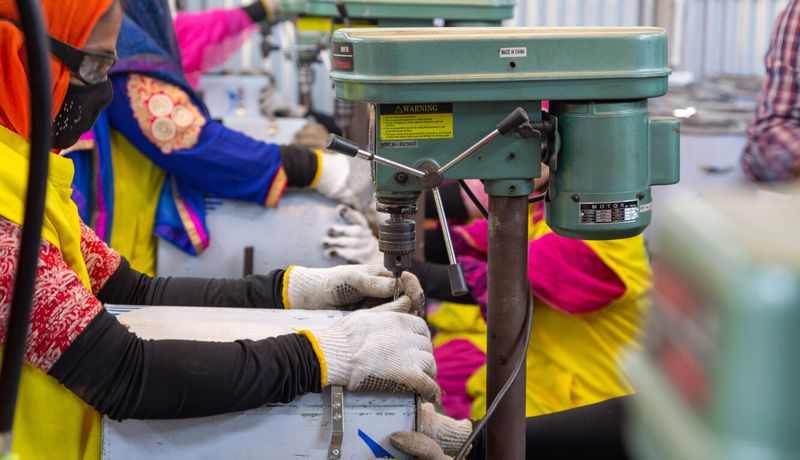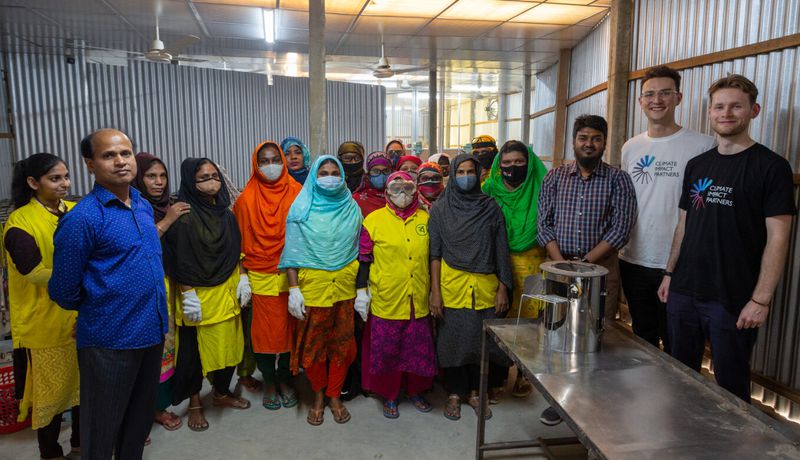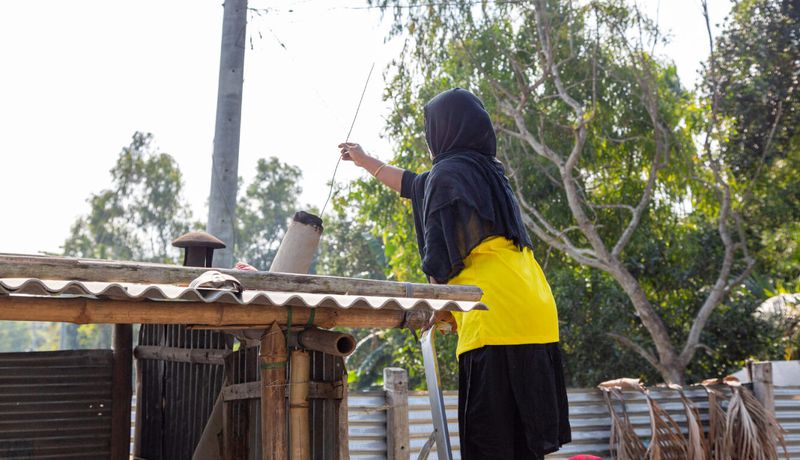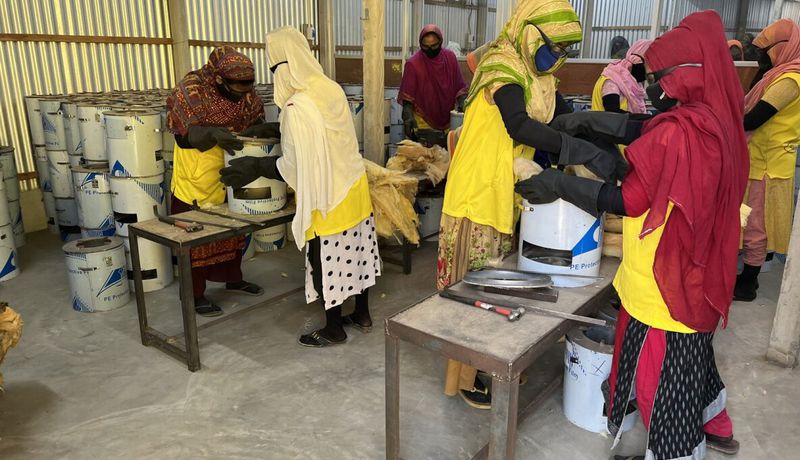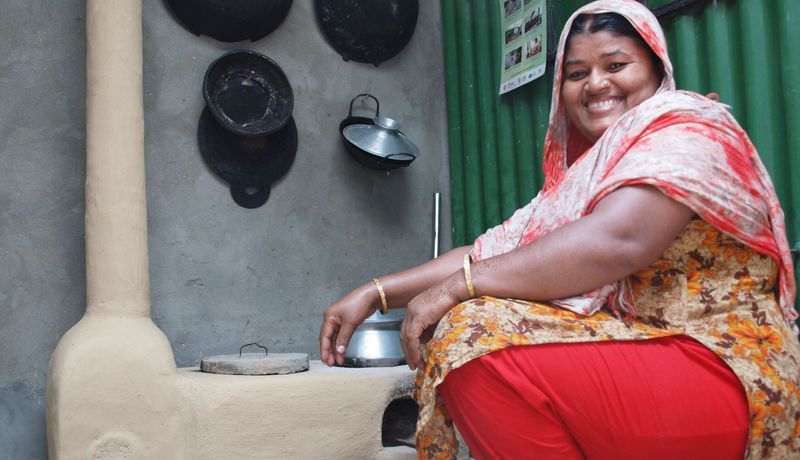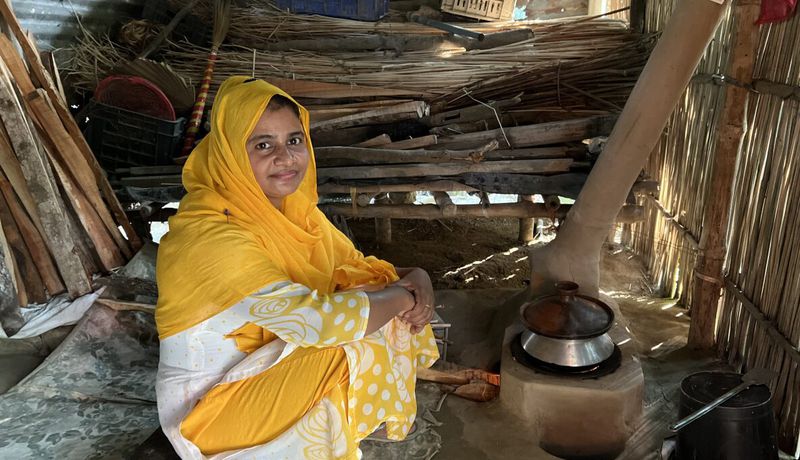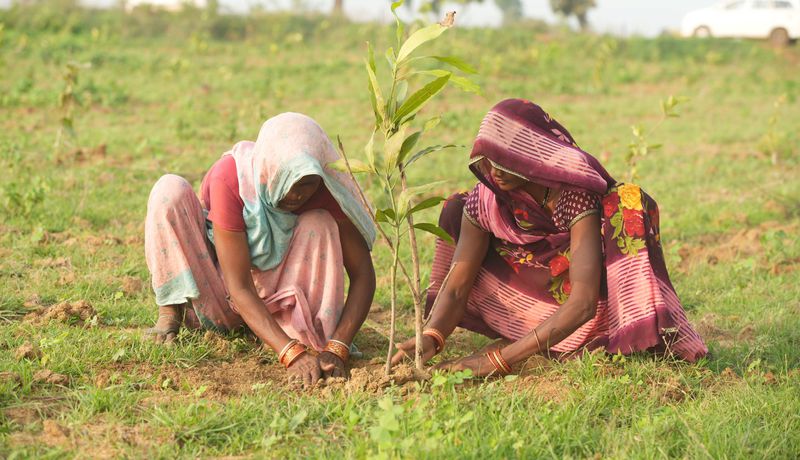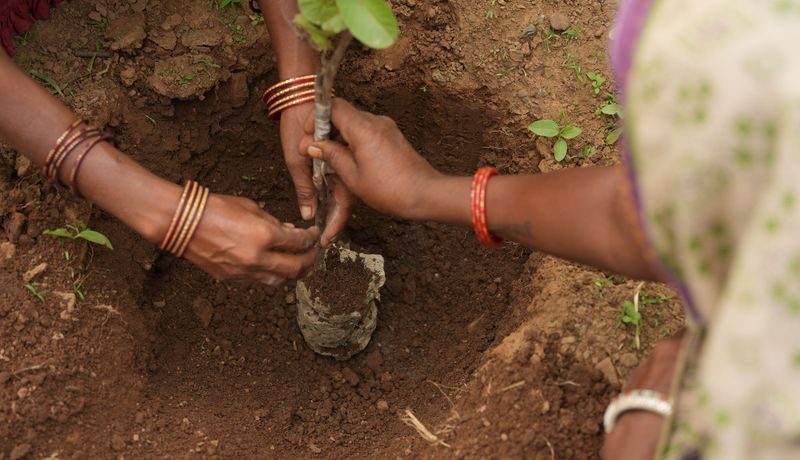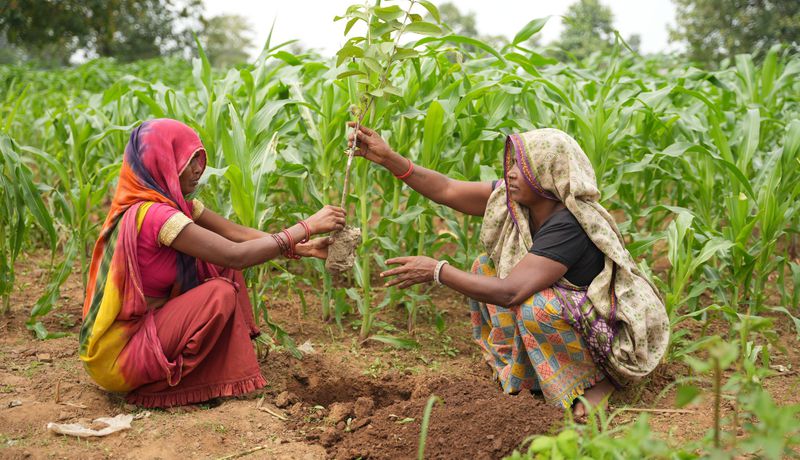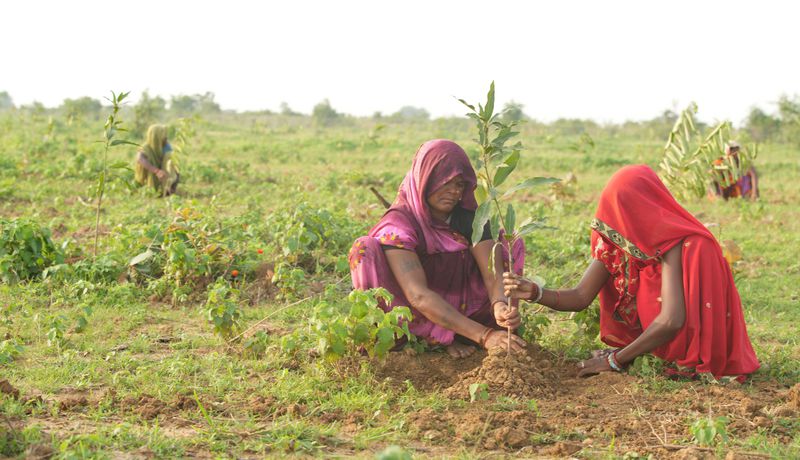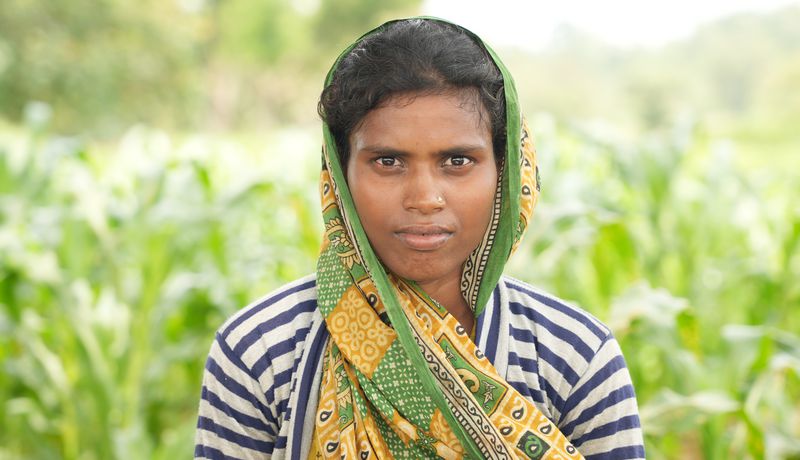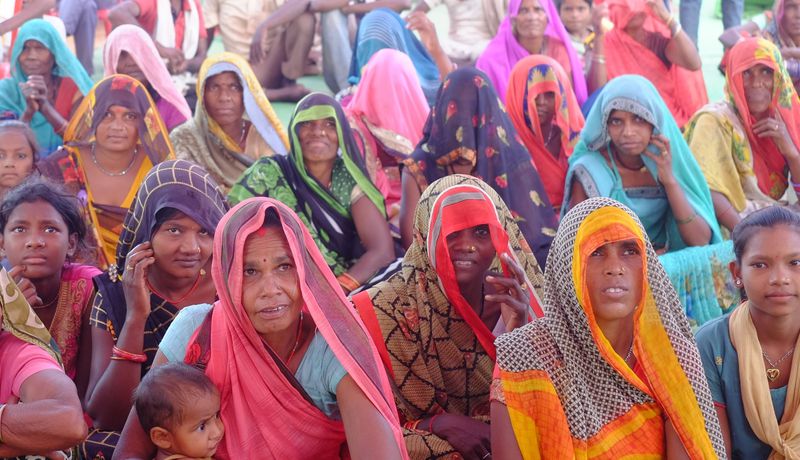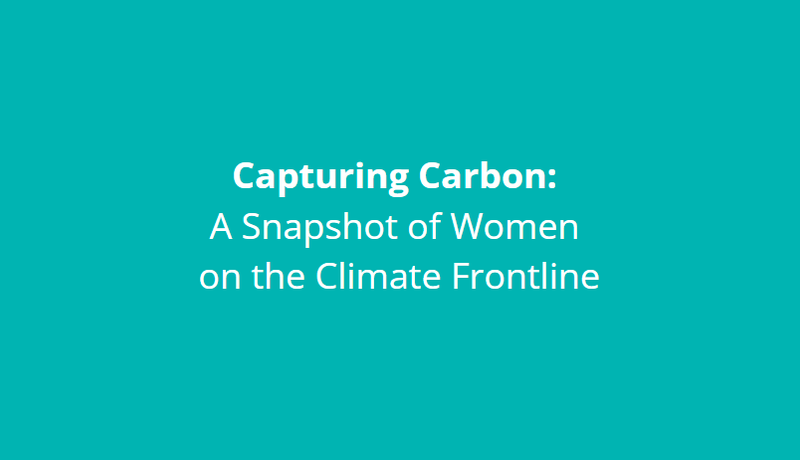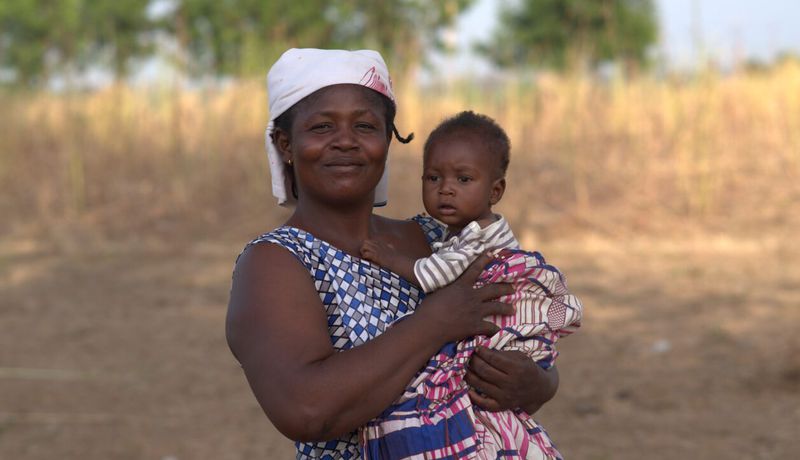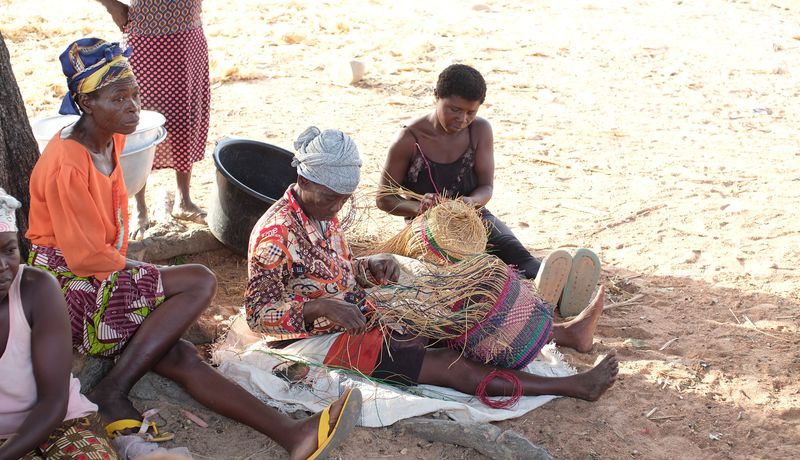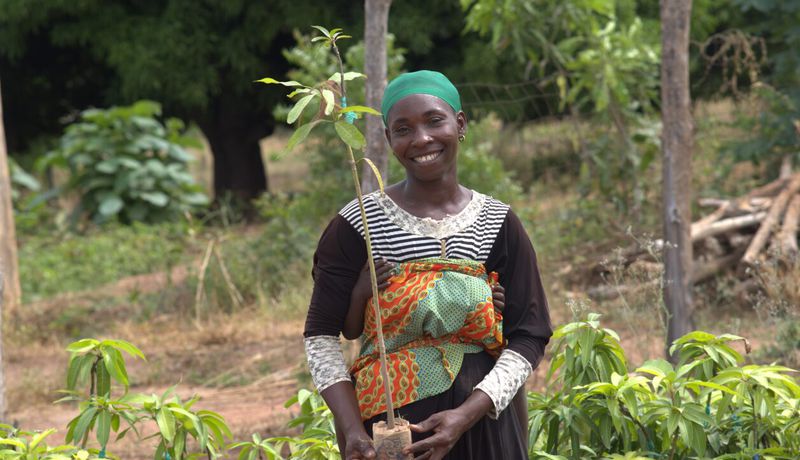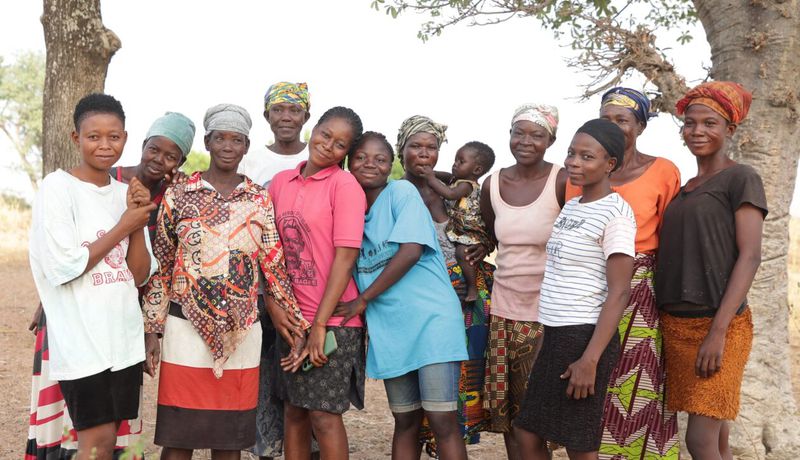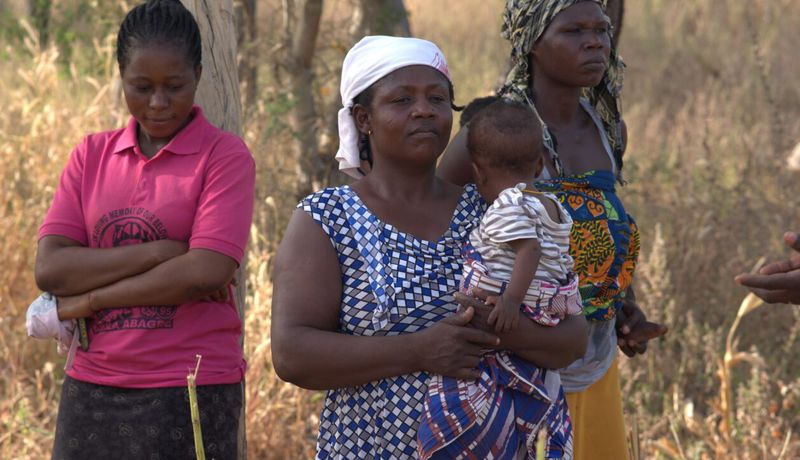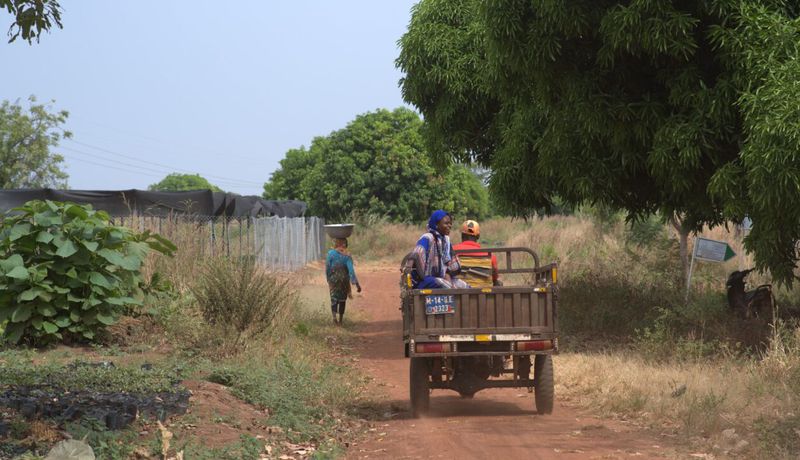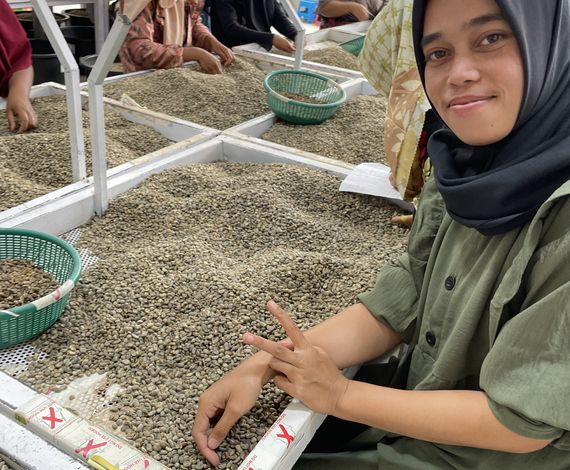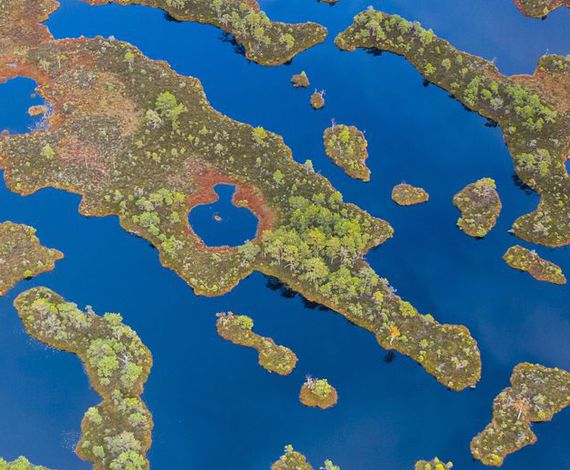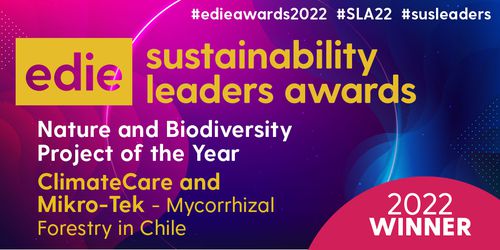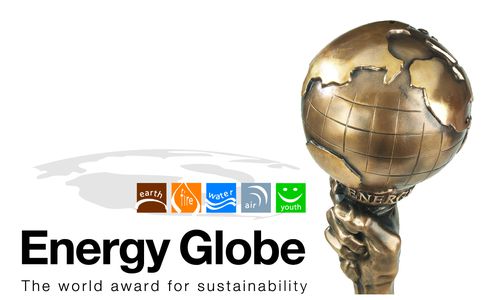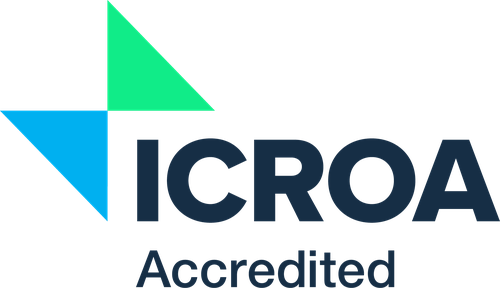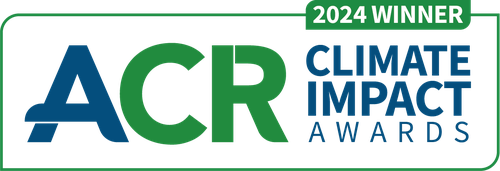This International Women’s Day and Women's Month, journey through the camera lens to explore climate action projects we work with around the world and how they are impacting women and girls. Learn why clean cooking devices are so critical to women’s health and livelihoods, how providing clean water means more girls can access education, and how the humble tree is providing access to new income sources and job opportunities.
Clean Water: The Ripple Effect
Have you ever stopped to consider what it means to have access to clean and safe water? For some women clean water means being able to break the cycle of poverty and earn an income, and for some girls it gives them back the gift of time, enabling them to access education. We work with some incredible projects seeking to tackle this issue around the world. Find out about two of them below.
Aqua Clara, Kenya
Aqua Clara is a social enterprise designing and distributing innovative water products and services to bring access to safe drinking water to people in rural Kenya and rural East Africa. As their CEO John Nyagwnecha shared in his recent interview for our Ambition to Impact podcast:
"In seven out of 10 homes it is the role of women to make water safe, and they are spending an average of 14 hours a month in this process. And so, when they invest in a water filter, you can imagine the savings that come with time. Time that can now be used more productively in things like agriculture that puts food on the table or money in their pockets."
Ecofiltro, Guatemala
Ecofiltro is a unique zero-emission technology that uses gravity and a combination of clay, activated carbon, and colloidal silver in a filter to purify water by removing pathogens and bacteria. The filters can purify water from a range of sources - rivers, lakes, wells, and rainfall. They use carbon finance to locally manufacture and deliver water purifiers to families and schools, providing a sustainable revenue stream and removing price barriers. The school-filter program has reached more than 1M students, and more than 6,500 schools in rural Guatemala where 54% of the population lacks access to clean water.
Clean Cooking: A Recipe for Success
Nearly 1 in 3 people across the world still do not have access to clean cooking technology, instead, they rely on biomass fuels such as wood and charcoal for cooking and heating. Not only does this create 1 billion tonnes of emissions annually, the same as the aviation industry, it also contributes to four million deaths per year from indoor air pollution – more than HIV, Malaria and Tuberculosis combined.
With responsibility for cooking often falling to them, women and girls are disproportionately impacted by the negative consequences. Installing more efficient cookstoves may be a simple solution, but the human impact is huge, as you'll see in the images below.
Circle Gas, Kenya
The Circle Gas (implemented by M-Gas) pay-as-you-go (PAYG) gas stoves use smart meters to make clean cooking more affordable for households and small business that typically cook with solid fuels. The goal of the project is to accelerate access to gas cookers especially among low-income households to significantly reduce GHG emissions, and other negative health and environmental effects associated with use of traditionally unsustainable solid fuels - impacting women in particular.
As Martin Kimani, M-Gas, CEO East Africa shares:
"Women are the bedrock of our society, and our solution M-Gas truly impacts women and their households". Recounting an experience meeting an M-Gas customer who had been struggling because of use of unclean fuels Martin said that "6 months after starting to use M-Gas, she no longer needed medication for her eyes nor her chest pains as she was happily using LPG for the first time. I am happy and proud when I see how we are impacting the lives of many women."
Bondhu Chula, Bangladesh
The Bondhu Chula project in Bangladesh, created by the Bondhu Foundation, has created a specialist programme to train women to become stove maintenance experts, visiting homes to carry out checks and repairs on stoves. These jobs as maintenance specialists are entirely new income-generating opportunities and focus on recruiting women – they are the experts as the primary users and beneficiaries of Bondhu Chula stoves in Bangladesh. Crucially, carbon finance is used to subsidize 50% of the cost of stove installation, provide after-sales services and a week-long training programme for local entrepreneurs.
To fully immerse yourself in this project, watch our 360 video tour.
ARR: Rooted in impact
Trees absorb one third of global emissions every year and one study found that 2.3 million living species depend on a single average tree - they are a critical tool in tackling the climate and biodiversity crises. But what about their role in tackling gender inequality? Find out how two of our Afforestation, Reforestation, and Revegetation (ARR) project development opportunities are closing the emissions and gender gaps simultaneously.
Panna Afforestation, India
A community-based afforestation project in the Madhya Pradesh State, India, which offers companies the opportunity to secure nature-based carbon removal credits over the next 25 years. Working with a local tree planting expert, that has worked with communities within India’s tribal belt for more than 20 years, more than 11 million native trees will be planted over 20,000 hectares of private farmer and community lands.
The project is increasing the proportion of women involved in agricultural land management and planning, with new sources of income generated through fruit trees and new jobs created in nurseries and project implementation and monitoring. With a key focus on water infrastructure, the time women often spend collecting water and firewood for boiling it will be significantly reduced.
Rachael Nutter, Global Director of Project Development shared: “We believe in the impact of this project – both on climate and communities. It is a clear example of why afforestation is so much more than planting trees. It has a strong focus on water conservation infrastructure, building nursery capacity and training communities on climate-smart agricultural techniques. It will also deliver long-term sustainable income to farmers, alongside the creation of new jobs.”
Great Green Wall, Ghana
Working with Tree Aid, this project is part of the Great Green Wall initiative to combat desertification and grow a vast belt of trees, vegetation, and fertile land across the drylands of Africa.
Across 20,000 hectares of community land in northern Ghana, we're planting African Birch, Mango, Africa Locust Bean, and African Mahogany, turning once-barren land into thriving ecosystems. This project is putting women at the forefront through village-specific consultations, ensuring we can understand and address local priorities, fostering a truly community-led approach.
This isn’t just about trees: it’s about upskilling local people and providing the right tools to grow native trees and generate sustainable incomes. The planting of fruit trees is a core part of the project design and has a huge impact, allowing communities to sell surplus harvests at local markets, transforming subsistence farming into thriving small businesses. With this additional income, women-led cooperatives can invest in materials for artisanal industries such as basket weaving and handicraft production – as you’ll see in the gallery images.
Learn why clean cooking devices are so critical to women’s health and livelihoods, how providing clean water means more girls can access education, and how the humble tree is providing access to new income sources and job opportunities.
